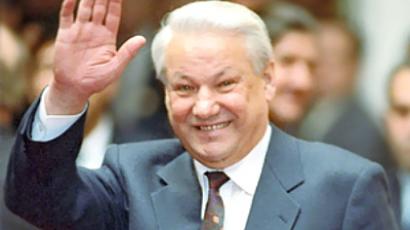Failed coup indication leftist policies rising in Latin America
It was a moment that ignited Latin America once again. The attempted coup against the democratically elected President Rafael Correa of Ecuador seemed reminiscent of previous coups that destabilized past democracies.
The last of which occurred in Honduras in June of 2009.
One woman attending a massive demonstration to honor those killed by the right wing government in Honduras said, "They, the coup-mongers, they call them the natural allies of the United States. And why are they natural allies? Because this coup is theirs. Because it corresponds to the interests of the United States."
Almost immediately, the US was implicated in the Honduran coup. The right wing military generals who carried out the ousting of the democratically election president of Honduras Manuel Zelaya were trained in the United States.
The US State Department was the first to support the right wing government in an election most countries around the world deemed as illegitimate.
As for the former President of Honduras, he was in the midst of implementing leftist reforms similar to those in Venezuela, Brazil, Bolivia and Ecuador.
Which is why the crisis in Ecuador brought back memories of Honduras of Rodolfo Pastor, he worked for the Zelaya government.
"You have to wonder how these forces and these dark sectors within Ecuadorian society are strengthened and embolden by the coup in Honduras, and by the precedent that was set. And of course by the decision for the U.S. to support that coup," Pastor said.
Nearly every country in Latin America has experienced US intervention in one way or another. The ambassador of Nicaragua to the US insists the military coup in Honduras is paramount to understanding why the US needs to maintain control in the region.
"We can't forget that after the coup d'etat in Honduras, the United States has an interest in paralyzing the integration of the ALBA countries and the development of the social processes generated and made dynamic in the ALBA countries," said Ambassador Denis Moncada.
The fact that the coup failed in Ecuador is an indication the people of Latin America are mobilized in the direction of the left turn sweeping the continent.
It happened in Venezuela when President Hugo Chavez was temporally ousted by right wing forces. The people brought him back to power.
Then again, the people of Honduras generated one of the largest resistance movements in Central America against the right wing; US backed government of Pepe Lobo.
It’s an ideological shift in Latin America the US up against. Socialist leader from Bolivia, Venezuela, and Ecuador to emerging world power Brazil are operating participatory democracies; where the poor people of their countries are intimately involved in the direction of their political future.
The pull from right to left is distinct, obvious and very much alive in Latin America.













